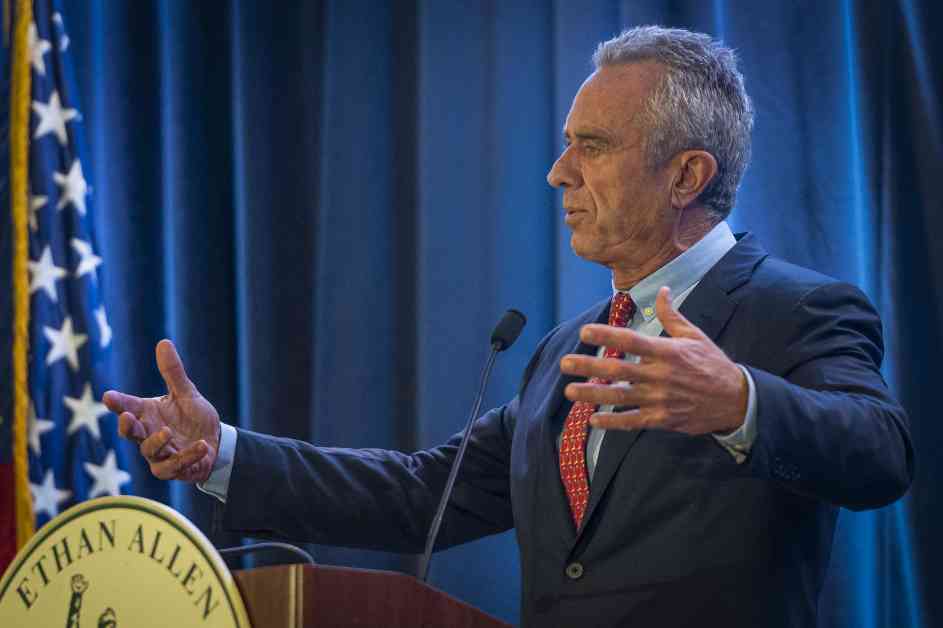In a recent turn of events, U.S. Senators Bernie Sanders and Peter Welch of Vermont have expressed their opposition to the nomination of Robert F. Kennedy Jr. as the head of the U.S. Department of Health and Human Services. This decision came after a committee hearing where Welch voiced his lack of confidence in Kennedy’s ability to lead the nation towards a better future. Despite this opposition, Kennedy managed to clear the Senate Finance Committee and now awaits a full Senate vote for his confirmation.
Concerns and Controversy
Sanders, known for his stance on various healthcare issues, highlighted his agreement with Kennedy on certain topics like addressing the ultra-processed food industry, high prescription drug prices, and excessive advertising by pharmaceutical companies. However, Sanders expressed his reservations about supporting Kennedy for the leadership role at the federal agency. He cited concerns that Kennedy’s appointment could potentially weaken public health protections, a sentiment echoed by many in the medical community.
Sanders referred to a letter signed by nearly 20,000 doctors, which raised alarms about Kennedy’s history of spreading misinformation on vaccines and public health measures. The letter emphasized the risks posed by such actions, noting that they could leave vulnerable communities exposed and endanger millions of lives. This stark warning further fueled the debate surrounding Kennedy’s nomination.
The Decisive Vote
Senator Bill Cassidy of Louisiana, a physician himself, had previously wavered on his stance regarding Kennedy’s nomination, particularly due to Kennedy’s past support of the discredited link between vaccines and autism. Ultimately, it was Cassidy who cast the deciding vote in the committee. His decision to support Kennedy added a crucial element to the ongoing deliberations, as Kennedy now faces the challenge of securing backing from a majority of Republicans to assume leadership of the Department of Health and Human Services.
As Kennedy navigates the intricate landscape of political approval, the fate of one of the nation’s most critical departments hangs in the balance. With a budget of $1.7 trillion, the Department of Health and Human Services plays a pivotal role in shaping healthcare policies and safeguarding public well-being. The outcome of the impending Senate vote will not only determine Kennedy’s future but also have far-reaching implications for the healthcare landscape in the United States.
Concluding the rewritten article with a thought-provoking reflection on the significance of the upcoming Senate vote and the potential implications for the Department of Health and Human Services.









